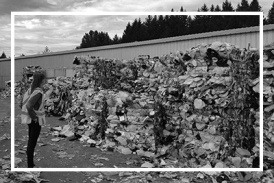Belvoria and SILQ Sign Strategic Collaboration to Accelerate Regional Growth
The agreement connects two industry-leading subsidiaries: ShopUp, Bangladesh's largest B2B commerce platform under SILQ, and Agrani Trading, the flagship distribution company of Belvoria, managing national operations for global brands such as British American Tobacco (BAT), Unilever, Reckitt, Marico, and others.
"This partnership marks the beginning of a new chapter-where traditional distribution strength converges with advanced commerce technology," said Dr. Sakib M Rahman, Chief Business Officer of Belvoria and Managing Director of Agrani. "Together, we aim to create a smarter, faster, and more connected supply chain for the region."
Afeef Zaman, Group CEO, SILQ and Founder of ShopUp, stated: "We believe this collaboration will redefine how goods move and businesses scale. Belvoria's distribution infrastructure perfectly complements ShopUp's digital backbone."
Vashistha Maheshwari, Chief Financial Officer of SILQ, added: "This partnership brings significant financial synergy and strategic alignment. It exemplifies the kind of cross-border cooperation needed to unlock sustainable, long-term growth."
Chowdhury Lutful, Director of Business Development at Belvoria and Agrani, commented: "Our legacy in FMCG distribution now evolves into a future-focused ecosystem. With ShopUp, we're building an engine for market access and efficiency at scale."
The collaboration will focus on digital integration, regional logistics expansion, and new business models that support scalable distribution across emerging and frontier markets.
About Belvoria
Belvoria is a Dubai-based investment and operating group with a focus on high-growth sectors including lifestyle, logistics, and consumer goods. Its core subsidiary, Agrani Trading, is one of Asia's most prominent FMCG distribution companies.
About SILQ
SILQ is a diversified business group with investments in commerce, real estate, and design. Its key technology subsidiary, ShopUp, operates Bangladesh's largest B2B platform, digitally empowering millions of businesses across the nation.
Natalie Hill
Belvoria
info|belvoriame.com| |info|belvoriame.com
Legal Disclaimer:
EIN Presswire provides this news content "as is" without warranty of any kind. We do not accept any responsibility or liability for the accuracy, content, images, videos, licenses, completeness, legality, or reliability of the information contained in this article. If you have any complaints or copyright issues related to this article, kindly contact the author above.
Fast Food and Quick Service Restaurants Market Is Booming So Rapidly | Dominoes, Chipotle, Greggs
FEDCON Strengthens Commitment to Cybersecurity by Starting CMMC Process, Encourages Others to do Same
Transforming Investment Insight: Marc Clapasson on Layer Finance’s AI-Powered Real Estate Platform
Kalendarium
Więcej ważnych informacji
 Jedynka Newserii
Jedynka Newserii

 Jedynka Newserii
Jedynka Newserii

Handel

Ze względu na różnice w cenach surowce wtórne przegrywają z pierwotnymi. To powoduje problemy branży recyklingowej
Rozporządzenie PPWR stawia ambitne cele w zakresie wykorzystania recyklatów w poszczególnych rodzajach opakowań. To będzie oznaczało wzrost popytu na materiały wtórne pochodzące z recyklingu. Obecnie problemy branży recyklingu mogą spowodować, że popyt będzie zaspokajany głównie przez import. Dziś do dobrowolnego wykorzystania recyklatów nie zachęcają przede wszystkim ceny – surowiec pierwotny można kupić taniej niż ten z recyklingu.
Przemysł spożywczy
Rośnie presja konkurencyjna na unijne rolnictwo. Bez rekompensat sytuacja rolników może się pogarszać

Rolnictwo i żywność, w tym rybołówstwo, są sektorami strategicznymi dla UE. System rolno-spożywczy, oparty na jednolitym rynku europejskim, wytwarza ponad 900 mld euro wartości dodanej. Jego konkurencyjność stoi jednak przed wieloma wyzwaniami – to przede wszystkim eksport z Ukrainy i niedługo także z krajów Mercosur, a także presja związana z oczekiwaniami konsumentów i Zielonym Ładem. Bez rekompensat rolnikom może być trudno tym wyzwaniom sprostać.
Transport
Infrastruktury ładowania elektryków przybywa w szybkim tempie. Inwestorzy jednak napotykają szereg barier

Liczba punktów ładowania samochodów elektrycznych wynosi dziś ok. 10 tys., a tempo wzrostu wynosi ok. 50 proc. r/r. Dynamika ta przez wiele miesięcy była wyższa niż wyniki samego rynku samochodów elektrycznych, na które w poprzednim roku wpływało zawieszenie rządowych dopłat do zakupu elektryka. Pierwszy kwartał br. zamknął się 22-proc. wzrostem liczby rejestracji w ujęciu rocznym, ale kwiecień przyniósł już wyraźne odbicie – o 100 proc.
Partner serwisu
Szkolenia

Akademia Newserii
Akademia Newserii to projekt, w ramach którego najlepsi polscy dziennikarze biznesowi, giełdowi oraz lifestylowi, a także szkoleniowcy z wieloletnim doświadczeniem dzielą się swoją wiedzą nt. pracy z mediami.









.gif)

 |
| |
| |
|